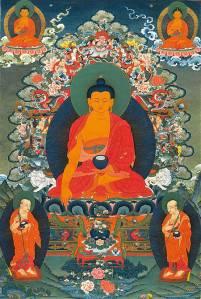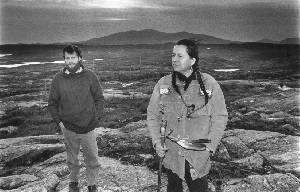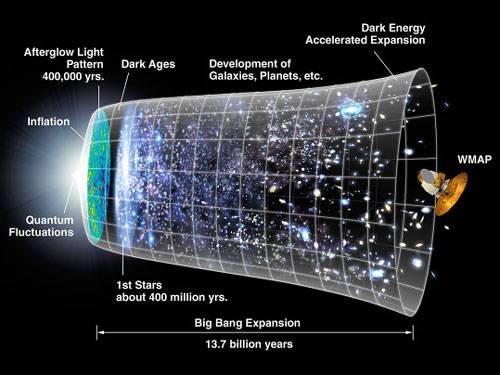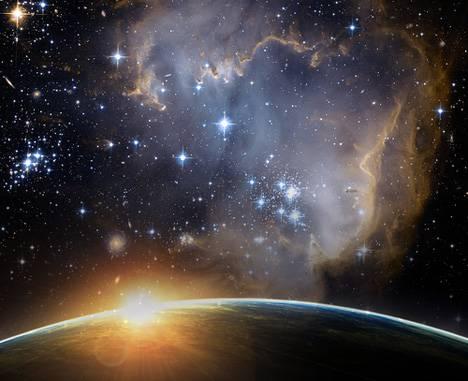[](http://ecohustler.files.wordpress.com/2010/02/ancient.jpg)
William Blake's God
More than anything else, the future of civilization depends on the way the two most powerful forces of history, science and religion, settle into relationship with each other.
Alfred North Whitehead
SUPPORTED BY HEROES LIKE YOU
Support independent eco journalism that drives real change.Technology is presented as the solution to environmental problems but wasn't it technology that got us into this mess in the first place? This won't sit well with the people trying to sell us green gadgets but we may have to change more than just our light bulbs. The environmental crisis we face is more than just a technological challenge. It is also a moral challenge. Most people on earth still belong to the world's great religions. Could these huge collections of people hold the key to the widespread behaviour change needed to save civilization?
Science without religion is lame; religion without science is blind.
Albert Einstein
The success of science is the foundation of the modern age. Science has enabled us to build new technologies, live longer and accrue unprecedented material wealth. However, the ongoing expansion of human capital is marred by the looming spectre of environmental collapse. Humans are expanding into, and at the expense of, the natural world upon which we depend. Humans also have a track record of using smart technology in stupid ways. Exploding thermonuclear devices above cities, engineering viruses and building gas chambers all demonstrate the immense harm we can do ourselves with technology. Holding up science and technology as the solution to environmental problems passes the buck away from the simple truth that it is what we do with technology that is the problem. To paraphrase Ghandi we need to be the change that we want to see in the world; our behaviours and cultural norms must change in line with our changing ecological context.

Indian Cow
A scientific interpretation of religion sees it as a complex adaptive system of beliefs that persists because it instils an advantage on practitioners. For example, the reverence of the holy cow in India effectively prevents the slaughter of cattle. Anthropologist Marvin Harris has shown that cows play a critical role in the Indian economy and the greater good is served by not slaughtering them. The dung is fuel, their traction pulls ploughs and they provide an ongoing supply of milk for children. Thus religion can act as a means of optimizing behaviour.
Religion is culturally ubiquitous and acts as social glue. It provides the common values necessary to make individuals want to do what they must do if social order is to be achieved especially in times of hardship or scarcity. Examples can be found from every religion of peoples' faith providing a narrative allowing them to make sense of their universe and optimize behaviour in the face of overwhelming unknowns and challenges.

The Pope: useful priorities?
Clearly, religion has its dark side. History is made up of bloody competition between warring tribes. Often it is religious belief that gives a human superorganism its sense of superiority and it readiness to fight and destroy other groups. However, just as modern nations are increasingly multicultural; could not religions coexist with a shared sense of duty towards the planet? An expansion of the religious approach from being tribal or ethnic to planetary could transform modern religions into powerful forces for nature conservation. Just to take Catholicism as an example, if the Pope invested a fraction the energy he spends on sexual morality encouraging sustainable resource use the gains for everyone would be huge.
Voluntary (material) simplicity, revering creation and showing love to fellow humans will be pivotal ethics in the campaign to reduce the total human ecological footprint and are core teachings of many religious leaders including Jesus, Mohammed, Buddha and Ghandi. Yet to date there seems to be little coming together of environmental and religious worldviews. Are religious people so focused on the afterlife they aren't concerned with progress down here on the earthly plane? Perhaps new and more relevant interpretations of what the religious founders were saying are called for?

Buddha
The root etymological meaning of religion, the Latin religio, translates as 'to connect'. A modern interpretation of our religions could connect all humankind to itself and to this planet. By combining with religions a more sophisticated understanding of our mutual interdependencies and the physical limits of our planet a common cause between religions can be identified and a common route into future existence mapped out.
This is in actual fact the completion of a circle. The first religions were invariably based on nature worship. For our ancestors the environment was more immediate and vital. Food, predators and the seasons determined life and death from one day to the next. So it is fitting that as our environmental conditions again become a matter of survival the focus of our religions should pan back and once again incorporate all of the natural world not just human affairs.
It is hard to hear the first voices of dissent opposing never ending economic growth in the face of the deafening roar of development. Indeed environmentalists have been branded radicals and terrorists for opposing the apostles of the free market. Greens with a spiritual dimension to their campaign are derided most: 'New Agers'. However the 'idealism' behind moving to an ecological age is in fact the only rational future for humanity. Prophets or shamans may see outside the consensual reality tunnel and report back and precipitate change.

Mi'Kmaq Warrior Chief and Peace Pipe Carrier, Sulian Stone Eagle Herney with Alastair McIntosh, 1994. (Photo: Murdo MacLeod, The Guardian, 1994)
Alastair McIntosh was one such man. He stood firm in the face of development and preserved his home island. The Isle of Harris was chosen by Redland Aggregates as the prime location for a new massive quarry to supply aggregates for new motorway construction. At 10 million tonnes output per annum, the proposed quarry at Lingerabay would have been 50 times larger than a conventional large British quarry. The area is a designated National Scenic Area. Alastair a Quaker joined forces with Donald Macleod the Calvinist and Chief Stone Eagle Herney a Kmaq Warrior from Nova Scotia to lead an irresistible campaign preventing construction. They all testified at the public enquiry not by engaging in a scientific debate but by drawing on a sense of profound connection to the land, reverence for God and entering into a 'dynamic of service to the natural world'. Their testimonies supported by the pluralistic, democratic campaign proved an unstoppable force.

The Awakening Universe... what next?
For these people religious thought is clearly more than just an adaptive behavioural trait. It is an expression of the spirituality available to all people. Life has evolved into ever more complicated forms on this planet for 3.6 billion years. This increasing complexity suggests a direction and purpose. Opposed to the onward march towards entropy of the rest of the universe life is becoming ever more complex and organized. Humans sit atop this apex of development and our conscious minds, composed of atoms created in suns, is the awakening universe knowing itself.
God sleeps in the rock
Dreams in the plant,
Stirs in the animal,
And awakens in man.
Sufi Teaching
The development of human consciousness and the science and religious thought associated with it allowed humans to expand out of our ecological niche and spread over the world. An expansion of this consciousness further will allow us to shift from competition driven on by our so called 'selfish genes' to cooperation. Once society becomes sustainable the world is literally our oyster. Technology can be called upon to once again enhance the human condition. We can explore our planet; celebrate and study other life forms; realize the full creative potential of our imaginations and ultimately head for the stars.

Our Cosmic Crib
The environmental crisis is an outward manifestation of the collective psychological crisis of humans struggling within the existential void of existence that comes from the false belief that we (our egos) are independent entities separate from the rest of the universe. This crisis represents an opportunity. In choosing to move into a sustainable, ecological age we must necessarily open our hearts to our fellow humans and deepen our connection to nature. The ultimate spiritual revelation, as reported back by the great sages independently in disparate religious traditions is called the Perennial Philosophy. It is the 'the confidence that we have devolved from a single Source and the process of spiritual development is completed and perfected in our return to that One'. It has been stated thus:
'Thou Art That' or Tat Tvam Asi (Sanskrit: तत् त्वम् असि or तत्त्वमसि),one of the [MahÄvÄkyas](http://en.wikipedia.org/wiki/Mah%C4%81v%C4%81kyas "MahÄvÄkyas") (Grand Pronouncements) in VedanticHinduism
'Be still and know that I am God!' Psalm 46:10
'If thou knowest thine own self, thou knowest God.' Ibn-Al-Arabi
This has been expressed differently in our time by the environmentalist David Suzuki who said: 'We are the environment.' Of course this is a scientific truth too. Humans are dissipative structures. Our organizational structure is maintained through the consumption of our environments. We eat other living organisms and the atoms of their bodies become the atoms of ours. There is a flow of energy and matter from the universe around us into the temporary structures that make up our bodies. So ultimately scientific and religious thought converge. The take home lesson is that you should love your environment, your planet and indeed your cosmos as if it was yourself, because it is.
Understanding this not only leads to the conclusion that what we do to the environment we do to ourselves and that a species going extinct is like the death of a part of our soul but that everything around us, including ourselves is, for lack of a better word, God. This expansion of consciousness is our next evolutionary step. We have reached what Buckminster Fuller called our 'final evolutionary exam'. Choosing existence and starting the shift to an ecological age is an opportunity to reinterpret our existence. At best sustainability will be a triumph of our better nature and shared adventure into spirit. At worst, we will survive.

Zen



